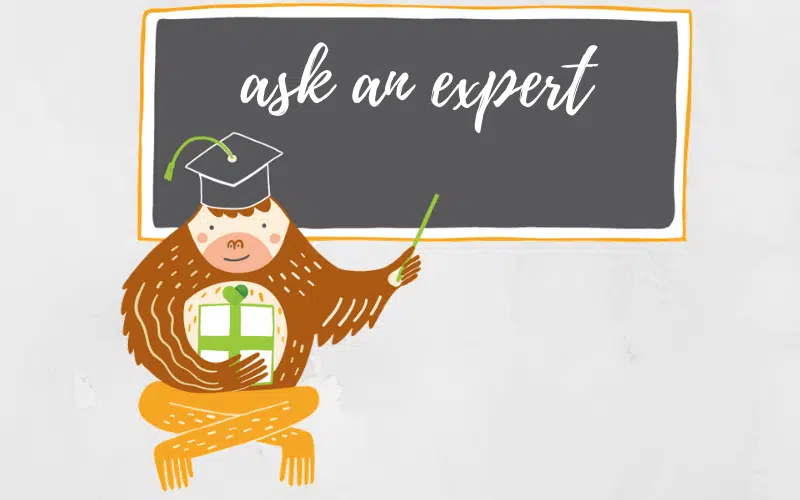[ASK AN EXPERT] Is There A Good Way To Raise Funds To Retire A Debt Or Pay For Something Retroactively?



Our Ask An Expert series features real questions answered by Claire Axelrad, J.D., CFRE, our very own Fundraising Coach, also known as Charity Clairity.
Today’s question comes from a grant writer who wants advice on how to apply for grant funds if you’ve already made the purchase.
Dear Charity Clairity,
Can or should you apply for grant funds if you’ve already made the purchase (i.e. a van)? If this is OK, how do you describe the need if you’ve already secured the vehicle? I guess it’s like backfilling or replacing your revenue, but I’m not sure how funders look at that.
— Doubting Grant Writer
Dear Doubting,
I think you’ve answered your own question.
It’s seldom a good idea to fundraise to retire debt or “backfill.” It makes you look inefficient, and that’s something it’s difficult for funders to forget. It’s a little bit different with major individual donors who know and love you and are willing to help as a member of the family. That type of love is more unconditional, and they’ll “bail you out” because of that love. Do you have that kind of relationship with any foundation funders?
Were you to run a special debt retirement campaign (sometimes necessary due to emergencies or other unforeseen circumstances), such a campaign must be carefully crafted. You need (1) a defensible, believable explanation for why you incurred the debt, and (2) a strong rationale for why you will not incur similar debt in the future as no one likes to throw money into what seems like a black hole. But if you develop a strong case for support and call it something like a “Bridge to the Future” campaign, this fundraising strategy can be successful.
Sometimes organizations will add some endowment and/or capital renovation goals to such a campaign. The overall story being told is one of strategic foresight and strength consolidation. The case includes some combination of debt elimination, reduction of deferred maintenance liabilities and/or future occupancy costs, and development of an investment account to secure your own source of permanent annual funding.
I’ve also seen practical and convincing mortgage retirement campaigns in which the case for support is something like, “Help us retire our mortgage so we can reallocate that annual payment to other programs.”
The more specific organizations can be with how they will spend that money every year moving forward, the more credible and compelling the campaign will be. Mortgages and other debts generally involve making interest payments to bankers; most donors would rather help the programs and services you offer than see these financial institutions make another buck.
In your case, I’m not sure if this is really debt or more the case of trying to get someone else to pay for what you already paid for. Did you perhaps come across a foundation that primarily gives to capital projects (e.g. buildings and equipment) after you bought the vehicle and now you’d like to take advantage of this opportunity? This is completely understandable.
Yet generally funders won’t be receptive. They, like most donors, want to make something happen that wouldn’t have been possible without them. However, you can always call the foundation and explain your situation. Perhaps you got an exceptionally good deal on the van and had to jump on a limited-time opportunity. They may reward you for being proactive.
On the other hand, if they were an easy-to-research resource, and you simply failed to do your homework, they may say, “Sorry, come to us next time.”
It’s worthwhile to do some research to find foundations that fund capital projects. You always want to have options in mind when capital needs arise. I don’t know many who will agree to fund retroactively, unless you have a great relationship with them. It’s always worth asking, of course, provided you can get through to them on the phone and talk to them before you submit the proposal.
The real impact of getting this van paid for is that you’ll be able to use the amount you spent for the van for other purposes. If you have a donor who wants to slap their name on your van, either for publicity or to feel good about supporting your cause, you might consider emphasizing that specific opportunity.
I hope this helps retire any doubts,
— Charity Clairity
P.S. I know you’re a grant writer, which means every funding opportunity looks like a grant proposal. However, from a holistic perspective, your organization’s easiest route might be to try to find an individual donor who would like to see their name on the van. Do you have other staff who work with major donors? Work with them to identify donors who can help cover future costs like this one.
Have a question for our Fundraising Coach?
Please submit your question here. Remember, there are no stupid questions! If you need an answer, it’s likely someone else does too. So help your colleagues by asking away. Please use a pseudonym, like “Doubting Grant Writer” did, if you prefer to be anonymous.

Comments